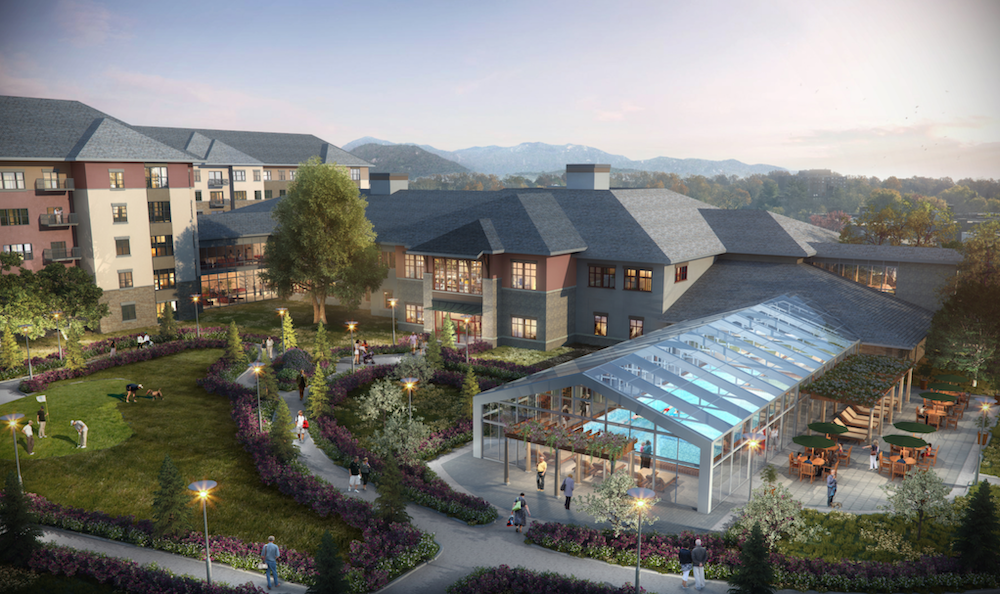Living in a senior housing community during the Covid-19 era brings a host of hardships to residents, and providers have had to adapt quickly in an effort to maintain consumer satisfaction levels.
The good news — according to new survey data shared with Senior Housing News — is that residents do appear to largely be satisfied with Covid-19 responses. However, there are also emerging pain points as the pandemic drags on.
The survey of 2,000 senior housing residents and their families in Florida, Kansas, Oklahoma, Texas and Utah highlighted where senior living providers have excelled and blind spots in their response protocols, Jacquelyn Kung, CEO of the Senior Care Group at Activated Insights, told Senior Housing News. Activated Insights is a Great Place to Work Company, and the firm behind Fortune’s annual best workplaces in aging services list.
Providers who participated in the survey such as WindRiver Management and Summit Vista view the survey’s response as a litmus test to their responses to the pandemic, as well as identify areas of improvement as the pandemic continues to spread.
Satisfaction strong
Overall, residents and their families are satisfied. Among independent living communities that participated in the survey, the highest community scored a 94 on the Covid-19 question while the lowest community scored a 74. Among assisted living facilities, the highest community scored a 95 and the lowest community scored a 77. To determine the score, Activated Insights used the top two percentages among those who answered “strongly agree” and “agree.”
The survey’s participants were also given opportunities to elaborate on a provider’s response to the pandemic. Answers ranged from expressing gratitude for transparent communications and preparations to thanking staff for their professionalism and positive attitudes on the job, as the crisis continues. Some residents and their families indicated that they would like to see some protocols remain in place after the pandemic subsides, and even pointed out gaps in safety protocols to providers.
The survey reinforced WindRiver’s proactive approach to securing its communities during the pandemic, COO Joe Hessley told SHN. The Duncansville, Texas-based operator manages 15 communities in Florida, Oklahoma and Texas, ranging from independent living and affordable independent living, to assisted living and memory care.
WindRiver restricted its facilities to only essential personnel, which it defines as being integral to a resident’s established care plan. It also leveraged its campuses to allow for socially distant exercising, dining and activities, and launched virtual meetings between residents and their families.
As a result, WindRiver has been mostly virus-free throughout the pandemic. To date, no residents have contracted Covid-19, and only two associates in different states have tested positive for the virus. The operator is seeing surges in positive cases in a handful of markets, but has not relaxed its restrictions, and is carefully monitoring news move-ins for signs of the virus.
Many of WindRiver’s residents replied that they have felt safe throughout the pandemic as a result of the operator’s actions, Hessley said.
Summit Vista was concerned about how its Covid-19 response resonated with its residents and was surprised to find an overwhelmingly positive reception, Director of Community Life Raquel Braithwaite told SHN. Summit Vista is a life plan community based in Taylorsville, Utah.
“We think we have a good finger on the pulse [of our residents] but sometimes our perception of how people are feeling can feel over-represented by a small group of folks who have a loud voice. Our perceptions don’t always match the data,” Braithwaite said.
Outside of the survey, Summit Vista has an eight-person resident advisory council that is very active in providing feedback with every department, Director of Sales and Marketing Kelly Omberg told SHN. Additionally, the operator conducts surveys with each new move-in, and several department-specific committees where residents volunteer their time to support the leadership with feedback, and Summit Vista CEO Mark Erickson has an open door policy with residents.
Restrictions compounding isolation
The survey confirmed providers’ suspicions that community restrictions and lockdowns are contributing to a growing sense of isolation among residents.
For Summit Vista, this led to improving its communications with residents and their families, Braithwaite said. Responses to the survey indicated an equal split between residents who felt the operator’s protocols were overly restrictive, and those who felt the procedures were not restrictive enough.
“Those who felt we were under-restrictive wanted us to be more forceful with our recommendations,” she said.
Summit Vista realized it needed to continue to educate residents about choice and risk. It now hosts daily meetings — sometimes multiple times a day — where it can adjust its communications based on the information received. The operator also collaborates with the Utah Department of Health for guidance, and balances that with residents’ concerns.
WindRiver’s early implementation of socially distanced activities and wellness has helped alleviate much of the isolation residents would otherwise struggle with, and helped forge stronger bonds among people in lower care levels. But it is experiencing increasing cognitive deficits among memory care residents grappling with being unable to physically visit with loved ones, as well as interruptions in their daily routines.
But this is no cake walk for even the most prepared providers. Universally, residents want this crisis to end, but most understand and adhere to the guidelines because they understand the risks and what it means to be a high-risk individual.
“They would love us to just ‘end Covid-19.’ We would love nothing more than to grant that wish. We continue to be creative in meeting the needs of our residents so that we can mitigate some of the caution fatigue we are experiencing,” Braithwaite said.


